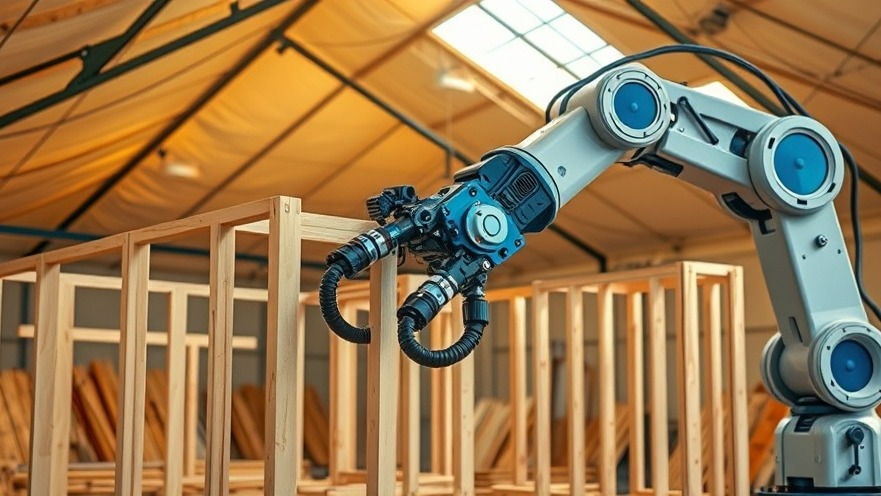
Embracing Innovation: How Tech Shapes Housing Solutions
The devastation caused by wildfires in Los Angeles has led to an urgent need for effective housing solutions. In response, a mobile robotic factory is being deployed as part of a project aimed at creating modular housing units that can quickly be produced. This futuristic approach not only showcases innovation in construction but also prioritizes efficiency in recovery efforts.
Robotics Meets Housing: A Game Changer for Disaster Recovery
As digital nomads increasingly seek efficient and adaptable workspaces, the implications of this robotic factory extend beyond housing. The adaptability of modular design offers opportunities not just for residences but for creating flexible workspaces. Imagine a home that can transform into a workspace seamlessly, embodying the remote lifestyle many crave.
Flexible Living: The Future for Digital Nomads
Modular housing constructed using robotics allows for customizability and adaptability, which is essential for remote workers. With the rise of the digital nomad lifestyle, the ability to create comfortable, ergonomic workspaces quickly and efficiently can enhance both productivity and well-being. Ergonomics play a crucial role here—having a designated area for work, even in a temporary or modular layout, promotes better posture and less strain during long hours.
The Role of Ergonomics in Modular Workspace Design
For digital nomads, the integration of ergonomic design within modular structures is vital. Furniture that supports correct posture, adequate lighting, and even soundproofing can transform a quick housing solution into a functional workspace. This focus on ergonomics can lead to higher productivity levels, reduced discomfort, and ultimately a better remote working experience.
Future Predictions: How Robotics Will Impact Remote Workspaces
As we look ahead, it's not just housing that robotic technology can revolutionize; it’s how we design our workspaces. The trends suggest that more mobile robotic factories could emerge, allowing for rapid on-site deployments of ergonomic workspaces tailored to the individual's needs. This shift could redefine work environments, providing flexibility that traditional offices lack.
Social Connection: The Value of Community in Modular Housing
While innovative technology shapes the future of housing, the human element remains significant. As digital nomads move towards these new spaces, building community becomes increasingly important. Surrounding oneself with like-minded individuals can inspire collaboration and creativity, strengthening both work and social networks.
Act Now: Embrace the Future of Workspaces!
The integration of robotics in modular housing represents a significant step forward not only in responding to immediate disaster recovery but also in shaping future workspaces for digital nomads. Your workspace should evolve with you, offering comfort and promoting productivity. As these innovative solutions emerge, consider how adaptable environments can enhance your remote work experiences.
 Add Row
Add Row  Add
Add 




Write A Comment